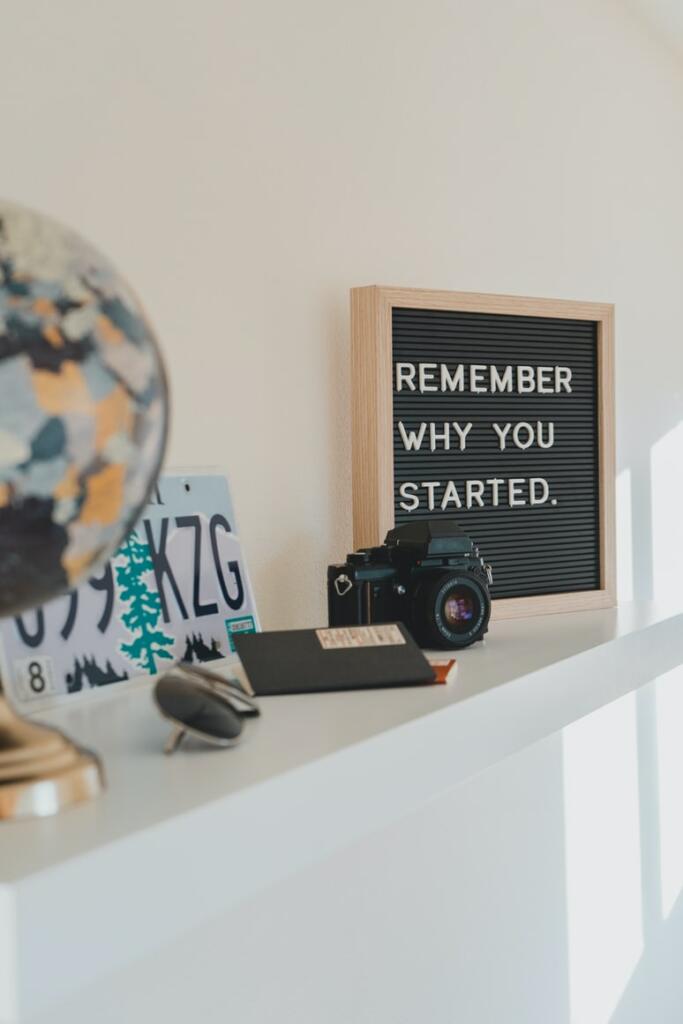Over the years, before I started PH SPOT, a common question I would receive from early professionals was related to work experience. This has remained true even after starting PH SPOT. I can relate when PH SPOT followers write to me and express their concerns of needing public health experience to get a public health job.
So, I thought back to my time during undergrad and post-Masters to write this post. I reflected back on strategies I used in order to gain my public health experience. These became the foundation of my public health experience and helped to bulk up my resume.
Don’t filter yourself out
I will start with the basics. We sometimes become our own limiting factor by restricting the jobs we apply to. There are many filters, literal ones on the job search websites, and the ones we have in our minds, that we apply when searching for a job. This can include location, length of contract (i.e.permanent, temporary), type of job (i.e. casual), and salary. This, I felt, was decreasing my chances of even getting an interview. Expanding my search my removing these filters opened up many more opportunities.
My advice to you would be to choose filters that are deal breakers to you. Perhaps it’s that you cannot take on a full-time job because your school schedule requires you to be available in the morning. Hence, you can only look for evening or weekend work. Maybe, it’s location: you cannot move out of where you currently live due to certain responsibilities you have.
Be intentional when you choose these filters. If you realize that your filters are just arbitrary, or that you have no concrete reasons for them (i.e. a set minimum salary upon graduation) you are limiting your opportunities.
My first job out of my masters was a casual job as a peer leader in cancer awareness. I was delivering health education on breast cancer and cervical cancer to my community, in my native language. It was only a few hours a week (at minimum pay), but it was a start. Once I landed this opportunity, I still continued my job search with full steam ahead. The casual job ensured that I was applying my health promotion and education skills. And, I was certainly learning a lot, while it added to my resume. However, I knew that I wanted something else, something more permanent.
Location is also something that individuals filter out during job search, and I think that this really limits your search. When you consider location, I encourage you to put a bit of thought into it. If you are living in Toronto for example, and by default, are always hitting “Toronto” on your job search filters, ask yourself why you are choosing to only look in here. Perhaps you have family responsibilities in the city or perhaps you know that you function much better with support from your social circle. And that’s ok. But, you need to know why you are making that decision.
If during this reflection you decide, okay, maybe I can’t move to a different province, but I can move within a 3 hour radius from my home-town. That single decision just opens up many more opportunities!
This example is the decision I made when I moved back to Toronto from Saskatoon. Being away from family, friends, and my partner for two years was difficult, but I did it. However, I decided that my job needed to be less than 3000 km for sure! I was willing to move somewhere within a radius of a few hours, allowing me to drive back to Toronto on the weekends, even if I was spending the weekdays in a different city. When you make that sort of decision, your options increase. If we push the radius to 3 hours from Toronto as an example, it gives you cities like Barrie and Midland in the north, all of the cities in Durham region and up to Kingston in the east, Hamilton, Kitchener, Guelph, and London in the west, and even Buffalo (USA) if you are willing to go across the border.
So, the tip here is to not let the filters of location, salary, or length of contract stop you from even throwing your name into the hat. If you have a solid reason for applying those filters to your job search, then go for it. Otherwise, keep those options open.
How can I be of assistance?
Jobs, internships, and volunteer opportunities may not always be posted. Get creative and see what sort of skills you have that can be of help to an organization or researcher (at a university).
If money is not a problem and you are able to spend some time to gain experience (because your resume does not have any public health experience) then these are some proven strategies I have used. Essentially, it’s to offer up your time and skill, in return for public health experience.
Not-for-profit organizations do amazing work and can use some additional hands on deck, especially with skills not abundantly available to them – like a public health professional!
As someone with a public health background, you can be of so much value to them. The trick is however, not to offer yourself as someone who is looking for “some experience”. Don’t put it on them to find you work. Be proactive and develop a proposal. Here are some steps to do that.
Reach out to a not-for-profit organizations that is aligned with your interest, something you know you will enjoy. Once you do, get to know more about their work. You can do this by exploring their website, social media accounts, reading their reports, and looking through LinkedIn to see what sort of roles people are in.
The next step is to check and see if they post volunteer positions. If they do, great. Get yourself signed up and once in a volunteer role, find opportunities to gain skills you are looking to build. If it’s in health promotion, ask to be involved in community outreach programs. If it’s research, ask to take on a research project. Most not-for-profit organizations may not even have anyone dedicated to doing research for them, so you will become a big asset. If at first the organization wants you to support the projects that they need the most help with (even if it’s not the skill you want to build on), don’t be discouraged. Find ways to be efficient at that task, AND offer additional support in the area you want to gain skills in. This way, you will shine!
I started volunteering at Diabetes Canada when I was in my last year of undergrad so that I could gain public health experience. I applied through a volunteer program they had posted and provided support with administrative tasks. Eventually, I positioned myself as someone who had additional skills, and should they need it, I would gladly support them. I eventually sought out opportunities to conduct an environmental scan, support community outreach activities at annual expos, provided public health promotion ideas via social media (I got them up and running on Facebook at the time), and provided training in tools to the staff there.
Some time later, they received funding to hire someone for a 4 month period over the summer, and guess who was top of mind for them? Unexpectedly, I got a paid job over the summer!
Alternatively, if you find an organization that isn’t advertising for volunteer opportunities, it will require a bit more work on your end. This was also part of my job search strategy after my Masters.
When I was looking for ways to gain public health experience, I came across a health centre in downtown Toronto. Their health centre provided primary care and chronic disease management services, as well as health promotion and education, outreach and social supports, and mental health services. Their particular commitment was to help people who may have been under-served by conventional health care. I was fascinated by their programs and services, and really wanted to get involved. However, the only volunteer opportunities I found on their website were for clinical roles (i.e. nurses).
Here’s a quick summary of steps I took (if you are interested in a more detailed post on how I approached this, with sample emails and all, let me know in the comments and it’ll happen).
First, I found contact details online for the program manager and sent them an email letting them know a bit about me. The email was brief and it led to me filling out a volunteer form (the only form they had was for nurse volunteers – so that’s what I filled in, with many spots left as N/A), and finally a few emails back and forth led to an invitation to meet and speak with the program manager.
Although I went in thinking I could volunteer on the front-line in someway, the conversation allowed me to understand where else I could provide support at the centre. Similarly, the program manager was also able to identify the gaps in the centre she could fill using my skills. After discussing some projects, we decided that there were two great programs that could use additional research/evaluation support, and it would be a great project for me to take on. I was thrilled because I would get an opportunity to apply what I had learned in a setting/space I was passionate about.
As I awaited for some formal agreements to take place, I had landed the full-time job I was applying to with PHAC (in a different city) – my job search was something I was transparent with when I met the program manager, so it was no surprise to them. Despite the timing not working out well, and me not having had the opportunity to work on the projects, it goes to show that if you are willing to put work into identifying your own opportunities, you can land something.
The tip here is to offer your skills/time in return for public health experience. There are many small and big not-for-profit organizations who could use the help of a public health professional. Finding something that will keep you excited will be key. For organizations that advertise volunteer roles, it’s a bit easier for you to reach out to them. And for those who don’t advertise, put a bit of thought into how you could get involved and what your proposal would be.
If this is a topic you’d like me to explore here on the blog, leave a comment and I shall put together additional tips and resources!
Tap into your network (only those who you actually know)
Part of my job search strategy after my Masters was reaching out to my network, mainly past supervisors (who were in Saskatoon) to see if they knew of anyone/organizations in Ontario who were looking to hire in the near future. Since I had a prior relationship with these individuals, I felt that it was appropriate for me to ask to be connected to prospective employers.
This will only work with someone you have had a previous relationship with: worked, volunteered, or went to school with. It’s up to you to determine if the individual you are reaching out to will vouch for you – it’s best not to put that individual in an uncomfortable position if you don’t think they would vouch for you. As a rule of thumb, reach out to individuals you have supported or worked with. Don’t feel like you can’t ask someone, especially if you know that you left a good impression. As humans, we want to give back and we feel good when we can do something in return for someone that has helped us.
The flip side to this is asking someone you don’t know for a job – this unfortunately, will not work. Just because you are connected to someone on LinkedIn, does not mean you know them. And, it’s often not okay to ask them to get you a job. Again, be intentional when you reach out to your networks. Choose the ones you have a relationship with.
My supervisor did connect me with other researchers in Ontario, and I pitched my skills to them. They were quite open to speaking with me and we did connect, however they did not have funding to hire anyone. Nonetheless, I learned that building your network early on goes a long way when you really need the help.
I speak about this in almost every post I write – build your networks! You will land some amazing opportunities through these relationships you invest in. Offer your skills and expertise when you can, without expecting anything in return. And when you reach out to these individuals some time later (when you desperately need it), they’ll be the ones to support you.
I wish you luck on your job search and let me know if these tips were helpful. Do you have others that you use? Let me know in the comments!






